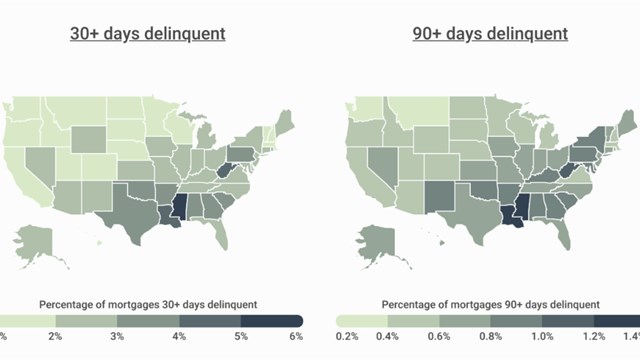Everyone thinks their home looks like two million bucks, but in the world of banks and real estate agents, it takes a professional appraiser to prove it. Especially in the unique and ultra-competitive world of New York co-op and condo real estate, having someone with all the facts and figures at their fingertips can be invaluable. Whether you're selling property or buying, an appraiser can provide you with the information you need to make practical decisions about your home and finances.
Most people's first appraisal experience comes when they apply for a loan to purchase or refinance a property. Banks insist on appraisals so they know they're not loaning more than what the property's worth.
"There are loan-to-value ratio requirements," says appraiser Peter Zachary of Peter L. Zachary & Associates in Brooklyn. "[Lenders] want to make sure that the loan they're extending is not above 75 percent of the property's value."
While banks are the ones responsible for hiring appraisers when it comes to loans, individual homeowners often hire out if they're looking to sell their property. In these cases, an appraiser can make sure you step into the market with an accurate price in hand. On average, a property's appraised price is usually concurrent with the list price, although independent Manhattan-based appraiser Lorna Leibowitz - who also works as a broker - advises her clients to add to the appraised value. "My feeling is, "˜let's leave room to negotiate,'" she says. "Everyone loves to feel they got a bargain. You don't want to have to come down on a price you've already accepted as your lowest possible amount."
If you're looking to buy property, you also might consider hiring an appraiser, especially if you're new to the area or perhaps do not have much experience buying real estate. Appraisers can also be called in to provide figures for property, divorce and estate settlements.
An appraiser begins the process by collecting all the basic facts and figures on a property, such as address, building size and unit size. Size is one of the only areas where co-op and condo appraisals differ. In the case of a co-op, it's the actual physical measurement of the interior space that determines the square footage. With condos, appraisers go by the square footage that's listed in the property's legal description, since that size includes a percentage share of the building's common areas.
With the basics of location and size in hand, appraisers then move on to a physical inspection of the property. "You have to make sure that what you're appraising is really what you're seeing," Leibowitz says. "Someone might give you a floor plan with 12 rooms, and you'll get there and find there are only nine. They forgot they sold the other three rooms to their neighbor years back."
At this point, appraisers are looking to get a sense of how well the unit and its building have been cared for and to determine if any new renovations or updates have been made. "You have to see what kind of condition it's in," Leibowitz says. "Are there beautiful new fixtures, or has nothing been done since 1902?"
Building upkeep is vital to a good appraisal price. "You could have the exact same building on two corners and if one's been cared for but the other hasn't, that will affect the value," says Michael Aliperti, SRA, an independent appraiser in Setauket, NY. "Even if your unit is better than a unit in the other building."
Inside your apartment, appraisers will be looking for additions or amenities that set your property apart from others. Is there a terrace? Is the view of Central Park, or of a brick wall? Is there a new industrial-size kitchen? New tile in the bathrooms or wood flooring in the bedroom? Does the building have a doorman or a concierge? "A doorman building versus a non-doorman building is really a big deal," says Aliperti. "It's a big issue with a lot of people in the city."
There are literally dozens and dozens of tiny details that will factor into a final price. "The art of appraising is knowing what things are actually important to the buyer," says Steven Knobel, executive vice president of Manhattan-based appraisal firm Mitchell, Maxwell & Jackson, Inc. "There are a lot of nuances. In the higher-end Manhattan market, the architect who designed the building is important. When you get to the lower end, no one cares."
Determining what counts obviously depends on market trends. Are large contemporary buildings bringing in the big dollars, or is it the more classic style that's generating sales? "There's a difference between a brand-new building versus a 1960s building that hasn't been touched," Leibowitz says. "However, a 1930s building that has been kept up will be even more desirable [than the new building]."
Similarly, your property's address can make a big difference. "The basic rule of real estate is location, location, location and that hasn't changed," Leibowitz says. Over time, prices fluctuate as neighborhoods flourish or fall. "The definition of what a good location is might change. Time was, when you mentioned North Moore Street, people would laugh. Now if you say it, people say, "˜Oh, you live in TriBeCa. It must be worth a lot.'"
Bottom-line dollars and cents count, too. Your building's financial status factors in to the mix in a very big way. "In the co-op market, you might have two buildings that from the exterior look identical and are on the same block," Knobel says. "One will sell for more than the other because of the co-op's financial structure and history."
If you're paying sky-high monthly maintenance fees, you'll also find that those dollars impact your property's overall value. "You might be paying very high maintenance fees and you'll find your market value will decrease," Aliperti says. "If you have low payments, the property becomes more desirable and your market value will increase."
Once all the facts and figures have been collected, it's the appraiser's job to find other properties against which they can compare and contrast yours. This can be the tricky part. "You need to find comparables in the same neighborhood - places that have the same forces exerted on them as the property you are appraising," Zachary says. "You have to compare apples to apples."
Appraisers work to match amenity against amenity. "If you have an apartment with a patio, that might be the exact reason why that apartment sells. Or an apartment with a park view," Knobel says. Often, the appraiser will try to compare with similar-sized apartments in the same building or just down the block.
With comparisons made, the appraiser can then sit down and determine the best possible estimate of your property's value. "An appraisal is an opinion of value," Knobel says. "It's not a science. You get within ranges of value." He adds, "The appraisal firm with the most data is the one with the most accurate appraisals."
It's also vital to remember that appraisals have a fairly short shelf-life. If you're looking to sell, but then decide to put it off for six months, the appraisal you just got might not be accurate down the road. "An appraisal is good as of the day it was written," says Knobel. "As time goes on and markets change, so does the value of that apartment."
When hiring an appraiser, it's important to work with someone who knows the area extremely well. "Make sure the person has a presence in that area," Knobel says. "Especially considering how important it is to know the nuances of each block."
Getting an appraisal varies in cost. "It pretty much depends on the complexity of the assignment," Leibowitz says. "Is it a full appraisal versus a simple letter? It's also based on the apartment itself. If it's a two-bedroom in a postwar building, there are lots of sales to compare it with and the process will be less involved. With fewer sales, you have to make more adjustments." In general, though, appraisals can cost anywhere from $400 to $1,500.
It's well worth the cost. The process might be involved, but in the end, a thorough, well-executed appraisal is the only way for you to know for certain that you're getting your money's worth. Knowledge is power, and an accurate picture of your property's worth is an invaluable tool, regardless of whether you're on the buying or selling side of the equation.






Leave a Comment